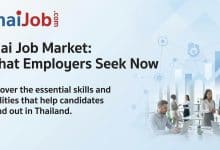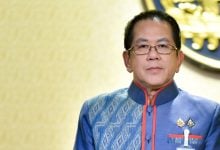Gen Z and millennials in Thailand seek meaningful work

Recruiting and retaining Generation Z (Gen Z) and millennial employees in Thailand hinges on providing meaningful work, a flexible work-life balance, and ample career opportunities, according to a survey by Deloitte.
Nearly one-third (31%) of Gen Z and 38% of millennial respondents in Thailand reported frequent use of generative artificial intelligence (GenAI) in their workplaces.
This year, both groups are experiencing lower levels of stress and anxiety compared to last year, with the cost of living remaining their primary concern.
The Deloitte 2024 Gen Z & Millennial Survey gathered responses from 22,841 individuals aged 19 to 29 (Gen Z) and 30 to 41 (millennials) across 44 countries, including 301 respondents employed in Thailand. Among the Thai respondents, 201 were Gen Z and 100 were millennials.
In Thailand, the second and third most common concerns for Gen Z employees were unemployment and wealth inequality. Globally, respondents cited unemployment and climate change as their second and third top concerns.
For millennial employees in Thailand, income inequality and political instability or global conflict ranked as the second and third most pressing issues. On a global scale, millennials listed climate change and crime or personal safety as their second and third top concerns.
Sense of purpose
The survey highlighted that 96% of Gen Z and 99% of millennials in Thailand believe having a sense of purpose in their job is somewhat important or very important for job satisfaction and overall well-being.
Additionally, 55% of Gen Z and 60% of millennials in Thailand refuse tasks that conflict with their ethics and beliefs, and 55% of Gen Z and 57% of millennials avoid working with organisations that contradict their values.
They prefer employers who prioritise work-life balance, offer learning and development opportunities, and provide meaningful work.
Overall, both groups in Thailand perceive that their employers show more concern for employees’ well-being compared to the global average. Human capital senior manager at Deloitte Consulting, Manita Limsakul highlights key areas to attract young employees.
“Meaningful work with driven purpose is important to those young generations as well as work/life balance for flexible hours/location. The ability to learn or career opportunities are key to maintain and attract young employees, particularly the talents.”
Manita emphasised that both groups constitute the primary workforce driving the global economy. Organisations that adapt to meet the needs of these younger generations will gain a significant competitive advantage.
Regarding climate change, 81% of Gen Z and 92% of millennials in Thailand expressed concern, surpassing the global averages of 62% and 59%, respectively.
They also believe that both government and businesses should play a more significant role in addressing climate change, with 90% of Gen Z and 91% of millennials willing to pay more for environmentally friendly products, reported Bangkok Post.
Latest Thailand News
Follow The Thaiger on Google News:


























